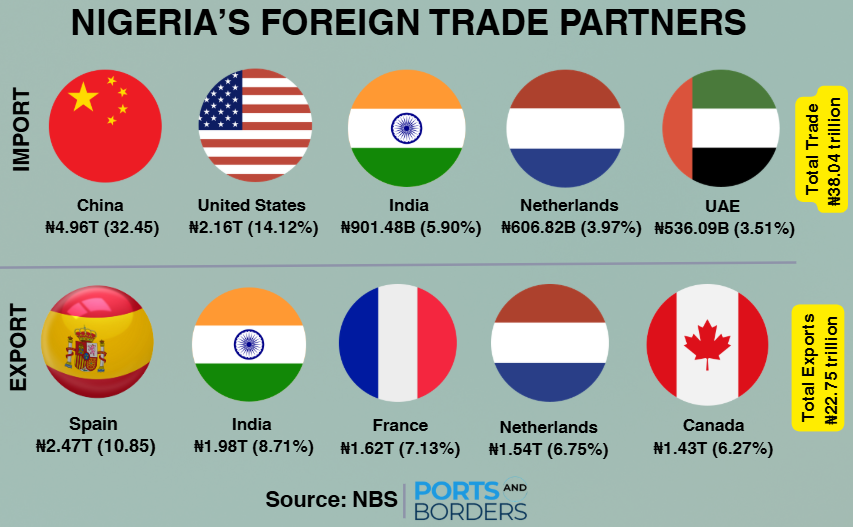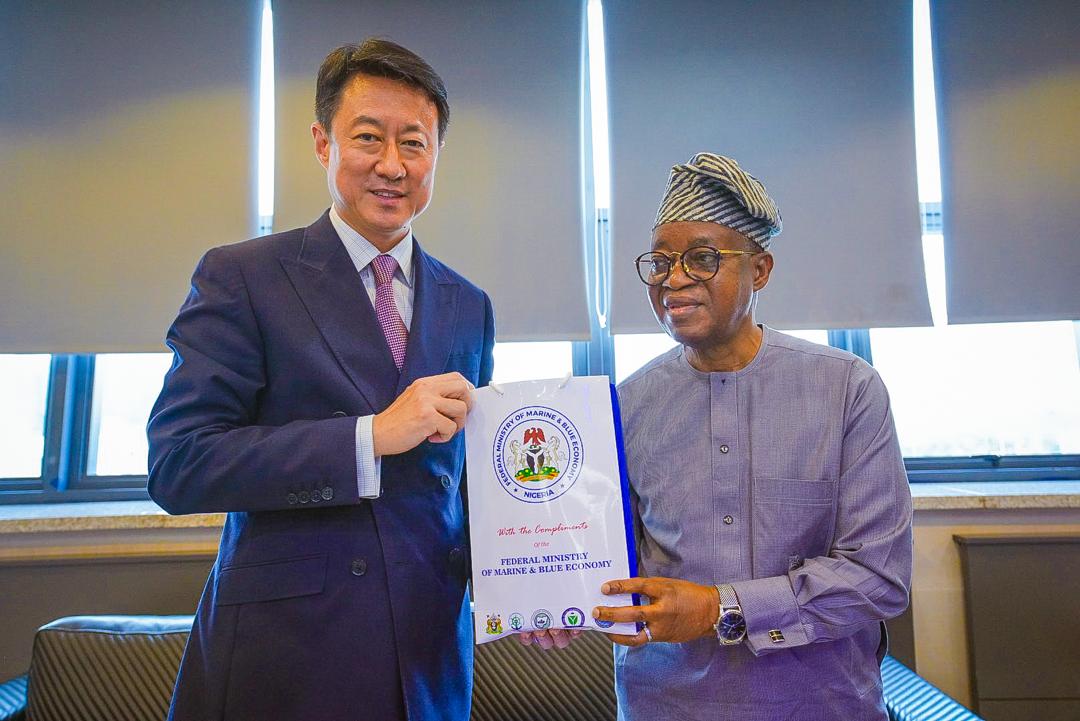Nigeria’s international trade continued to expand in the second quarter of 2025, reaching a total value of ₦38.04 trillion, according to the latest data from the National Bureau of Statistics (NBS). The trade performance comprised ₦22.75 trillion in exports and ₦15.29 trillion in imports, resulting in a ₦7.46 trillion trade surplus — one of the highest in recent years.
China remained the dominant player in Nigeria’s import landscape, supplying goods worth ₦4.96 trillion, which represented 32.45% of total imports. This reinforces China’s position as Nigeria’s key source for machinery, electronics, industrial equipment, and manufactured goods. The United States ranked second with ₦2.16 trillion (14.12%), followed by India, the Netherlands, and the United Arab Emirates, reflecting Nigeria’s continued dependence on Asia and North America for critical imports.
On the export front, Spain overtook traditional leaders such as India and France to become Nigeria’s top export destination, with purchases totaling ₦2.47 trillion or 10.85% of total exports. Other major destinations included India (₦1.98 trillion), France (₦1.62 trillion), the Netherlands (₦1.54 trillion), and Canada (₦1.43 trillion). Crude oil and natural gas remained Nigeria’s primary export commodities, although non-oil exports have continued to show gradual growth.
Analysts attribute Spain’s rise to its increasing demand for Nigerian crude oil and liquefied natural gas (LNG), alongside deepening economic ties between Nigeria and the European Union. The pattern also signals Nigeria’s growing diversification of export markets, with Europe, Asia, and North America collectively accounting for the bulk of outbound trade.
The data reveal a structural trade imbalance — Nigeria heavily depends on China and the U.S. for imports of finished goods, while its export earnings come largely from raw materials and energy exports to multiple regions. However, the widening trade surplus underscores the resilience of Nigeria’s export sector and its improving external trade balance amid global economic shifts.













